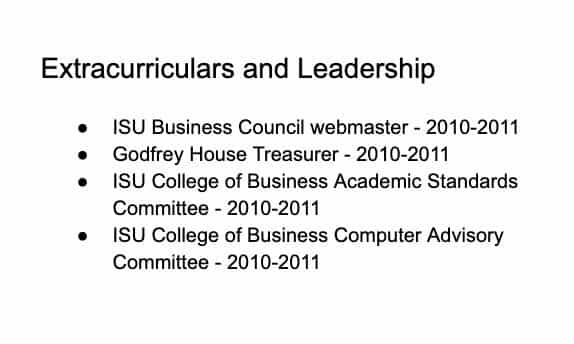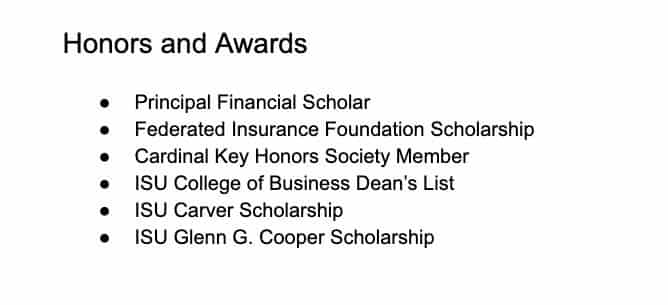

Applying for a Job? This is Exactly How to Write a Winning Resume

This is the most obvious function of the resume, but from an employer’s perspective it’s invaluable. If a job lists specific experience requirements or a minimum GPA, then it’s easy to filter out resumes that don’t include them.
It can also show the breadth of experience you have and even, in some cases, signal your qualifications. Someone who went to a prestigious school or interned at a prestigious company, for example, looks like a more qualified candidate (even if that isn’t actually the case).
You might think that a cover letter is the best demonstration of your writing skills to a potential employer, but your resume also showcases key writing abilities.
It displays your ability to condense a large body of information into a concise, 1-page document.
It shows that you can organize information in a logical manner.
And, of course, a resume that’s free of spelling and grammatical errors shows that you’re careful enough to proofread and pay attention to details (more on the importance of proofreading later on).
We get into the nitty-gritty details of resume creation later in this guide. But if you just need a quick primer on what sections your resume should have (and what to include in each section), here’s a brief breakdown:
Your work experience is crucial for helping a potential employer decide if you’re qualified for the job.
When listing work experience, we recommend you use the following format:
Here’s what this looks like in a real resume:

Filling in most of this information is easy, but the bullet points explaining your achievements are where some people run into trouble.
Specifically, many people make the mistake of just describing their “official” job duties. However, this tells a potential employer nothing about what you actually did at the company.
To make this information more useful, highlight your achievements, not your duties. If you can include numbers and statistics to back up what you achieved, all the better.
For instance, take a look at Thomas’s sample resume. He doesn’t just say, “Built a YouTube channel.” You could say that even if you had a channel with zero subscribers.
Instead, he gets specific and says, “Built a YouTube channel with 1.4 million subscribers and 63 million total views.”

If I were a potential employer, those numbers would get my attention. I’d want to interview such a candidate just to hear more about how they managed to get so many views and subscribers.
Note: In addition to formal “jobs” at companies, your Experience section can also include any cool personal projects you want to highlight (such as your website).
Up next, you should include a section summarizing your highest level of education. That’s right — if you went to college, then no one cares where you went to high school. The only exception is if you have a master’s or professional degree. In that case, put that before your undergrad info.
Here’s the format we recommend for listing your education:
Here’s an example:

In general, I don’t recommend including your GPA if it’s lower than a 3.2. If you include a low GPA, you’re unnecessarily making a bad impression.
The skills section is your chance to showcase anything you can do that would make you more qualified for the job. To list your skills, just use this format:
Here’s an example Skills section:

When writing the Skills section, the most important things to keep in mind are:
If you just graduated, then this is a chance to add some additional experiences that weren’t technically “work” but that are relevant to the job.
This section can include formal extracurriculars and leadership positions at your university/in your community.
When listing extracurriculars and clubs, just use this format:
Here’s an example Extracurriculars and Leadership section:

This last section is a chance to showcase any impressive honors or awards you received while you were in college (or even outside of college).
Here are some examples of things to include in this section:
If the honors and awards are relevant to the job, that’s even better. For instance, if you’re applying for an engineering position and you were part of your school’s engineering honor society, that’s definitely something to include.
Here’s an example Honors and Awards section:

Visit www.rapidezwriter.com for more advice. Also check our expert services.
Follow us on other social media platforms Instagram, Facebook, Youtube, Linkedin, Twitter.
#covid #careergoals #careercoach #careerdevelopment #interviewtips #jobopening #careeradvice #linkedin #motivation #resumebuilder #resumeadvice #internship #jobhunting #resumes #resumetemplate #entrepreneur #vacancy #resumebuilding #careerchange #staffing #recruiter #education #hiringnow #bhfyp #cvmurah #cvkreatif #resumeservice #networking #college #marketing